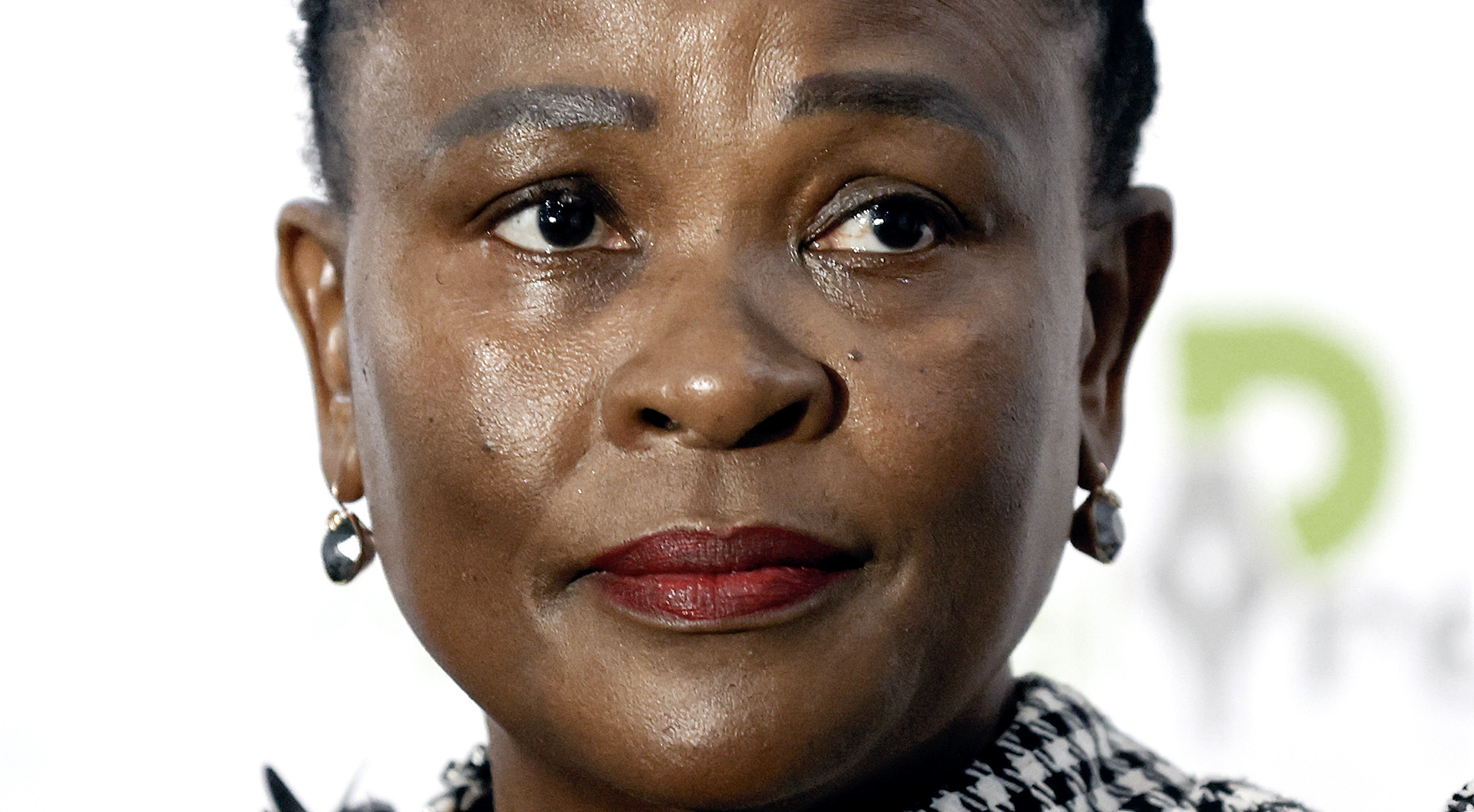Busisiwe Mkhwebane has suffered another legal setback in the dismissal of her application to compel her former employer to pay her a R10-million one-off gratuity, which was part of her job package and had been granted to all previous Public Protectors upon their departure.
The latest blow comes a week after the Supreme Court of Appeal (SCA) struck off the roll, with costs, her appeal against the Western Cape Division of the High Court’s dismissal of an application to remove the chair of her historic impeachment inquiry.
On Wednesday, not only did the North Gauteng High Court in Pretoria dismiss her application with costs, but Judge Omphemetse Mooki described it as “absurd”, further criticising Mkhwebane for attacks on the National Assembly and current Public Protector Kholeka Gcaleka.
In February, Mkhwebane received a letter from Gcaleka’s legal representatives, informing her of the decision not to pay out her gratuity, principally because she had not left the job of her “own volition” but after the adoption of a removal motion in terms of section 194 of the Constitution, followed by a compulsory letter of removal from President Cyril Ramaphosa.
In March, Mkhwebane filed an urgent application to challenge the decision, but it was struck off the roll for urgency, and sent to the deputy judge president for a decision. In August, Mooki re-enrolled it and set it down for a few days.
The February letter and decision not to grant Mkhwebane the gratuity was “clearly illegal and inconsistent with the Constitution”, according to advocate Dali Mpofu SC. It was also irreconcilable with the relevant provisions of her employment contract, he said.
Furthermore, Mpofu argued that denying Mkhwebane the payment would be arbitrary and amount to a cruel and degrading form of double punishment, which fundamentally contradicts the values of ubuntu.
Read more: Mkhwebane’s impeachment is irrelevant to her R10m gratuity claim — Dali Mpofu
The Office of the Public Protector challenged this, with advocate Tembeka Ngcukaitobi arguing that Mkhwebane did not meet the requirements for a gratuity payment because she had not left office as required by the Public Protector Act, but had been removed on grounds of misconduct.
In addition, Ngcukaitobi said in his heads of argument that Mkhwebane should not be granted the gratuity because during her tenure she had received an extraordinary financial benefit from the Office of the Public Protector through the payment of her legal fees amounting to more than R10-million.
Mkhwebane did not finish her term following a vote by Parliament on the recommendation of the lengthy and costly multiparty section 194 inquiry, which found her guilty of incompetence and misconduct and recommended her removal from office, weeks before she was due to complete her term.
Ngcukaitobi argued that granting her the payment would set a bad precedent and would be tantamount to rewarding “constitutional delinquency”.
Read more: Paying Mkhwebane a R10m gratuity would reward ‘constitutional delinquency’, court hears
Handing down his judgment, Mooki partially echoed Ngcukaitobi’s sentiments.
“I agree with the respondents that a gratuity is a token of appreciation, as expressed by an employer towards an employee… It would be absurd for an employer to be expected to pay a gratuity, being a token of appreciation to an employee who left office in disgrace.”
Both Mpofu and Ngcukaitobi spent considerable time interpreting the meaning of section 3.1 of the Conditions of Service, which states that a gratuity must be paid upon leaving office. Mpofu also cited the Basic Conditions of Employment Act which stipulate that when an individual’s contract has been terminated they must be paid their remuneration.
“It [Basic Conditions of Employment Act] doesn’t say if it’s terminated and you have killed a million people or whatever… There is no such qualification,” Mpofu argued.
Mooki also found that Mkhwebane’s complaint had been based on a contractual dispute and was not a constitutional matter, as she had argued initially: “An issue does not become a constitutional matter merely because a litigant calls it one or where the issue is dressed up in conditional garb.”
In pursuing the case, Mkhwebane has pleaded poverty, claiming she is struggling to make ends meet because she is now earning significantly less in her new role as an MP for the EFF.
Mooki dismissed Mkhwebane’s claim that her former office had violated several constitutional provisions and argued that she had not provided sufficient grounds for the relief she sought.
He further slammed Mkhwebane’s attacks on Gcaleka and the National Assembly.
“There is much that is regrettable in what the applicant said about the respondents. She did not substantiate the very serious allegations that she made, both in relation to the Office of the Public Protector and the person of Miss Gcaleka as a Public Protector. There was no need for the applicant’s intemperate comments against the National Assembly regarding events leading to her removal from office. This court is not concerned with her removal from office,” Mooki said.
Mkhwebane has been ordered to cover the respondents’ legal costs. DM
Maverick News
Yet another slapdown for Mkhwebane as judge dismisses ‘absurd’ bid for R10m gratuity





